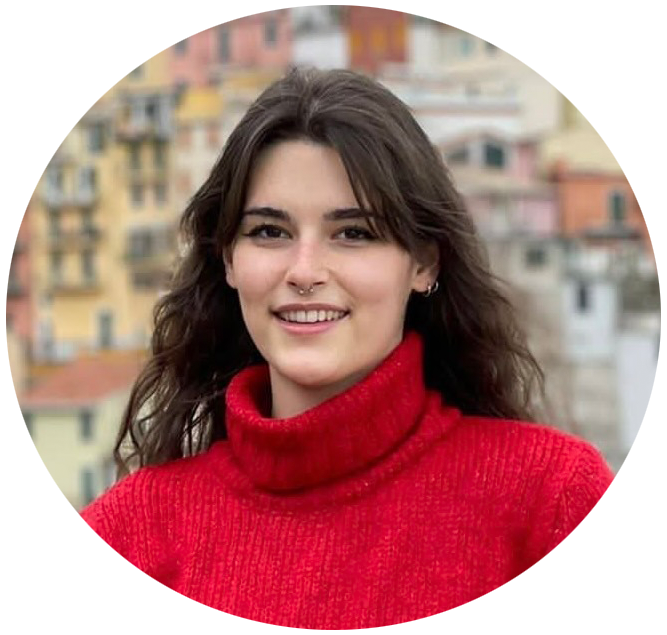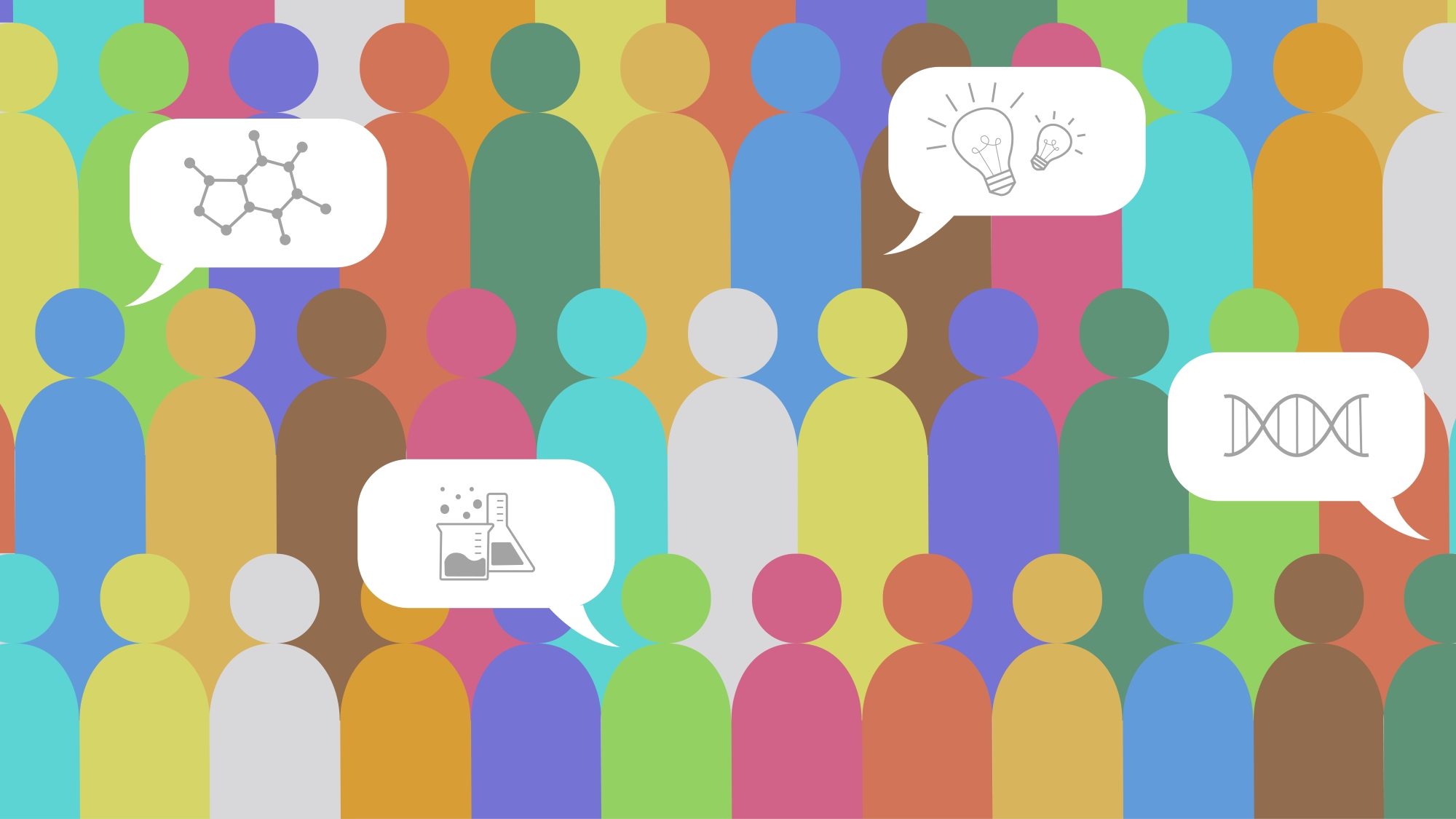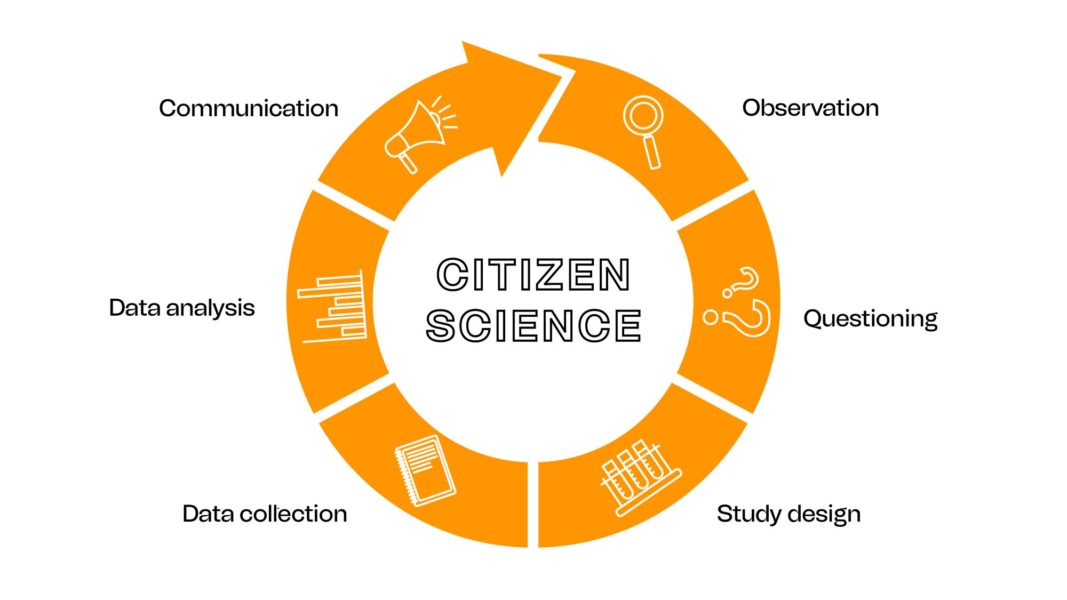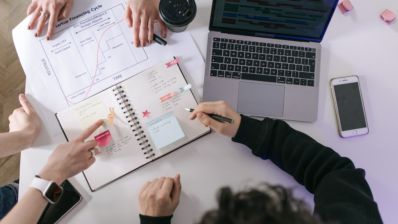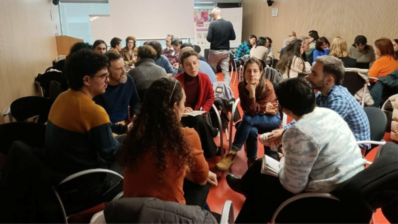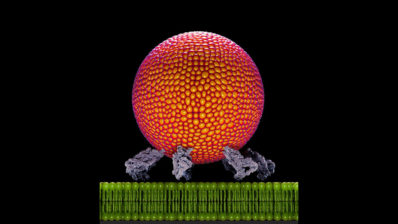Scientific research opens its doors to society in what is known as citizen science. These are scientific projects that are concerned with finding out about the interests and needs of citizens in order to provide answers to their questions and worries. In this way, they promote the active participation and involvement of citizens and the creation of a two-way dialogue between science and society.
This citizen participation can take place in any of the phases of a scientific study, from the proposal of the research question to the analysis of the data obtained:
- Observation. Citizens can become aware of the reality around them by raising their concerns and worries.
- Questioning. These concerns can be formulated in the form of scientific questions for a research project.
- Study design. Society can help in planning the methodology and design of a scientific study.
- Data collection. Mobilising society to participate in data collection adds great value to the project by providing access to information that would otherwise not be possible.
- Data analysis. Involving society in data analysis can help generate new insights or come up with more creative solutions.
- Communication. Making science interesting to society and getting citizens themselves to communicate research projects strengthens the link between science and citizenship.
At the Barcelona Biomedical Research Park (PRBB), citizen science plays a key role through various projects of the centres.
For example, the Centre for Genomic Regulation (CRG) created Genigma, an application for mobile devices that allows people to contribute to breast cancer research by playing a game. Elisabetta Broglio, project facilitator at the CRG and Genigma project manager, says that society was involved from the early stages of creation, involving 120 people from a wide range of backgrounds.
Also from the CRG, Mara Dierssen, neurobiologist and Down Syndrome researcher, talks about the Go-DS21 programme. This is a project which, through workshops, proposes a dialogue with people with Down Syndrome and their families to find out their opinion about research proposals in this field, focusing on obesity and cognitive disability as the main comorbidities associated with this syndrome.
On the other hand, the Department of Medicine and Life Sciences (MELIS-UPF) is participating in the Generation Solar application, which is part of the GRECO project. Luisa Barbosa, science communicator and coordinator of the project, explains that it is a platform where people can register photovoltaic installations and their characteristics to help solar energy research.
The Barcelona Institute for Global Health (ISGlobal) is also a strong promoter of citizen science projects. One of the latest projects in which it has participated is CitieSHealth, which places citizens’ concerns at the centre of research on environmental epidemiology. Thus, society is included from the first steps of a scientific study, participating in the proposal of the research question and in the design of the study.
In addition, ISGlobal has also collaborated in the Science Shops of the InSPIRES project. Originally, these Science Shops proposed that university students, supervised by an experienced researcher, would answer questions posed by civil society organisations (CSOs). However, they are now promoting more inclusive initiatives, bringing these projects closer to vulnerable sectors and unorganised civil society groups.
The Institute for Evolutionary Biology (IBE: CSIC-UPF) is also committed to citizen science with the “Melanogaster Catch The Fly” project. This is the first European citizen science network in adaptation genomics, and offers the possibility of experiencing the scientific work of leading researchers in this field of biology, bringing science closer to students and teachers from rural and other populations in Spain and Europe. Its scientific objective is to identify the genetic changes, molecular mechanisms, and phenotypic traits most relevant to the adaptation of organisms to different environmental conditions, focusing on the fruit fly, Drosophila melanogaster.
Pros and cons of citizen science
Elisabetta comments that “citizen science projects bring great value to the relationship between science and citizenship” and adds that “science can be made to work in a more horizontal way by listening to the needs of society and including citizens in the process“. Along the same lines, Mara points out that “knowing the opinion of the participants will always allow you to understand the problem better and be more aware of it”. Luisa, for her part, considers that there are many advantages to citizen science: “This type of project helps to increase trust and social acceptance, as well as sensitivity and interest in science. We can achieve a change of mentality and make people see that science is for everyone and that it is part of culture and society”.
“Such projects help to increase trust and social acceptance, as well as sensitivity and interest in science.”
Luisa Barbosa (MELIS-UPF)
However, all three agree that there are certain limitations or difficulties in these projects. Luisa explains that there is concern about the validity of the data, since “there are doubts about whether the data obtained are really solid and valid and; although there are many studies that show that they are, it is necessary to think very carefully about the methodology of data collection and to carry out a good follow-up and monitoring”. Mara agrees on the importance of data quality in relation to her project and comments that “it is true that sometimes there are data that can be extrapolated, but we also obtain very specific data. Even so, when the data are not statistically valid, they can still be used to focus and direct the project”. Elisabetta adds that “one of the biggest challenges in citizen science is to keep participants involved throughout the duration of the project”.
It is not easy to carry out a citizen science project, but Mara, Luisa and Elisabetta share with us some of the characteristics it must have to work. All three agree that it is essential to get together a multidisciplinary team with people who bring different visions and complementary skills. Mara also points out that it is necessary to know very well what you want to achieve and what your objectives are. Luisa places special emphasis on a strategic design that takes into account the sustainability of the project over time.
Paradigm shift
Luisa, Mara and Elisabetta agree that bringing science closer to society and promoting this type of collaborative projects between researchers and citizens should be more important among scientific teams. But for this to happen, it is necessary to continue working on promoting citizen science.
For this reason, Luisa says that “there is a need for a paradigm shift in research personnel and, above all, a change in the traditional models of scientific career evaluation“. Mara adds that “not only publications or patents should be evaluated, but these projects should also be taken into account in the curriculum”. Furthermore, all three agree that these projects are very costly in terms of effort and time, so funding and more political will are needed.
A change in the models of scientific career evaluation is needed, so projects like these are taken into account
Adding value to this relationship between research and society will increase the benefits for both sides and make science more open, participatory and inclusive.
